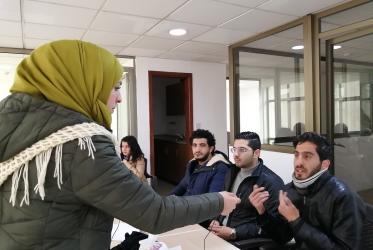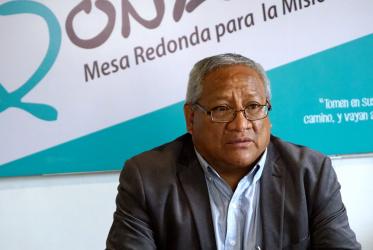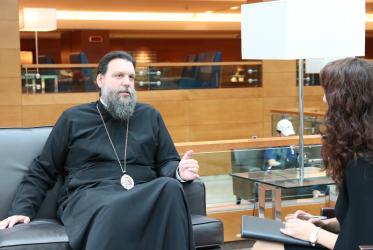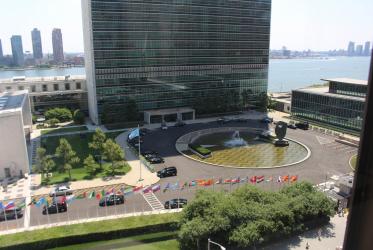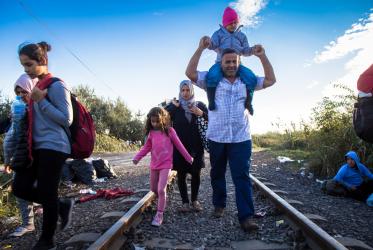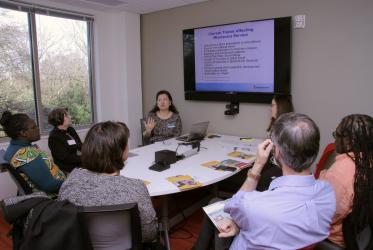Displaying 1 - 20 of 43
Migrants in Argentina find listening ears and open hearts
04 November 2022
Are migrants seen and heard? Conference presses the question
19 October 2020
A faith-based, holistic approach to HIV and AIDS-care
13 March 2019
Turning mercy and compassion into action
04 March 2019
How can you help refugees?
11 October 2018
Religious organizations speak up on refugee crisis at UN event
29 January 2018
WCC to co-host public event on migration and displacement at UN
17 January 2018
4th Annual Symposium on the Role of Religion and Faith Based Organizations in International Affairs
22 January 2018
United Nations Headquarters, New York
In Lebanon, refugees face hardship - but find hope
16 March 2017
Strong bridges needed more than ever
21 December 2016


